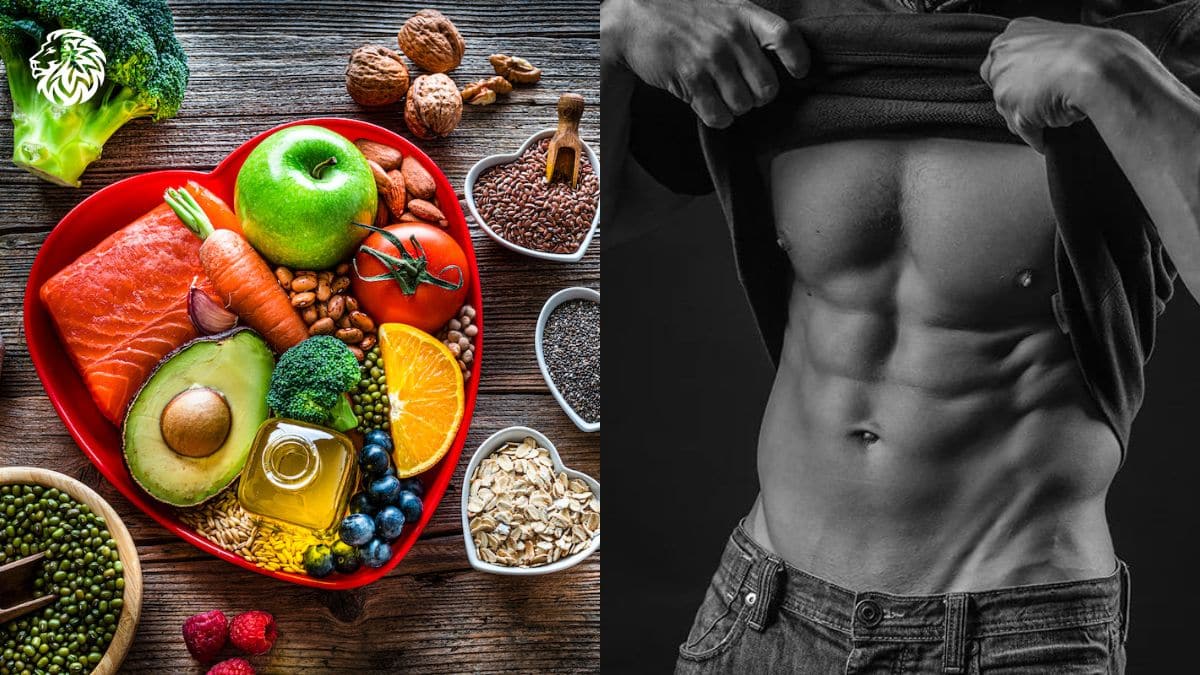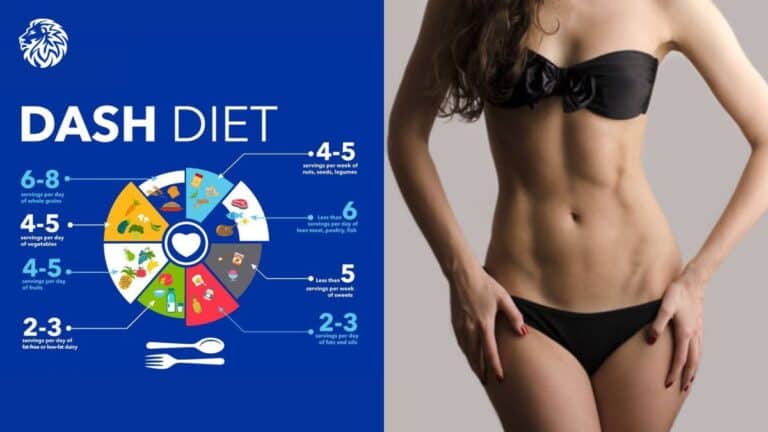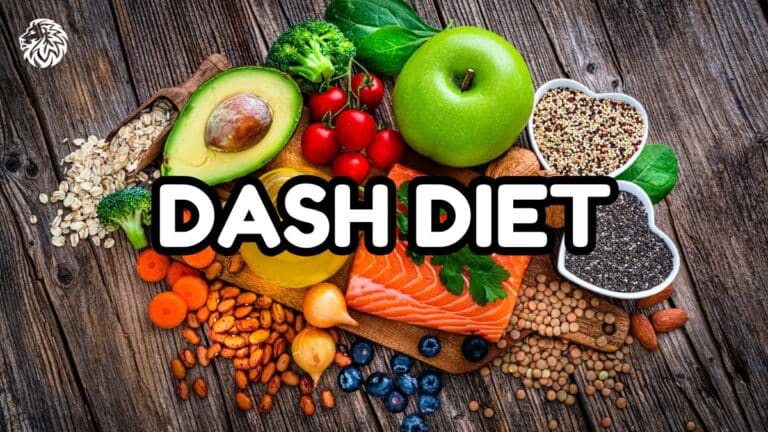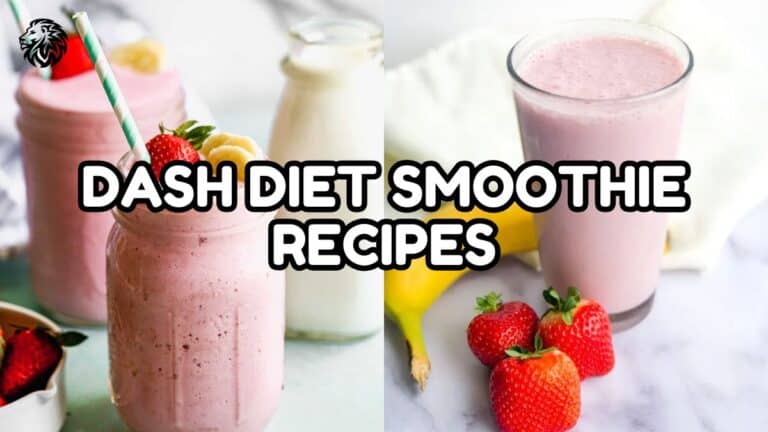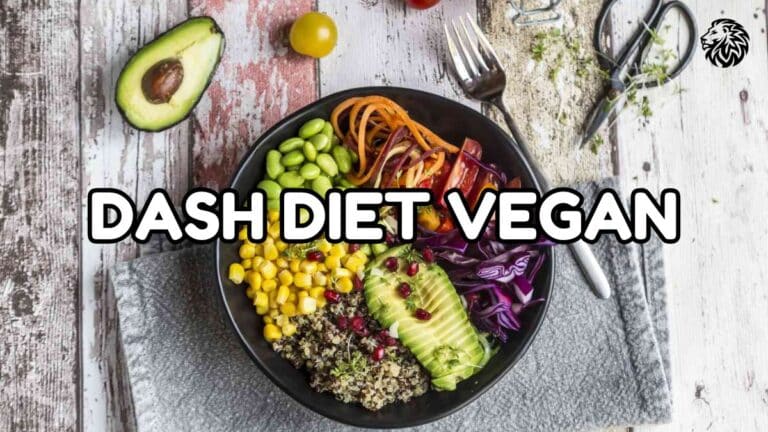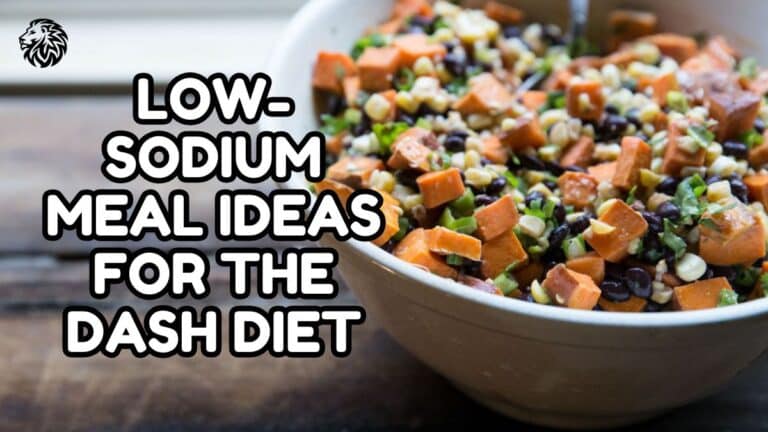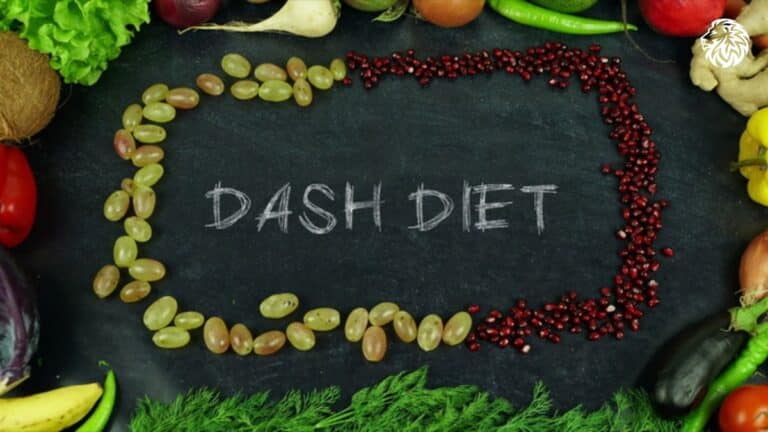The DASH (Dietary Approaches to Stop Hypertension) diet is widely known for its effectiveness in managing blood pressure. But many wonder whether it also works for weight loss. With its focus on balanced, nutrient-rich eating, the DASH diet can indeed support weight loss goals, but the results depend on several factors, including portion control and physical activity.
In this blog post, we’ll explore how the DASH diet can promote weight loss, what makes it different from other diets, and how to get the most out of this approach if losing weight is your goal.
Understanding the Basics of the DASH Diet
The DASH diet was originally developed to lower high blood pressure (hypertension). It emphasizes whole foods like fruits, vegetables, lean proteins, and whole grains while limiting sodium, added sugars, and saturated fats. This combination naturally reduces calorie intake for many people, which is a key factor in weight loss.
Unlike fad diets that cut out entire food groups or require extreme calorie restriction, the DASH diet promotes sustainable eating habits that provide your body with the nutrients it needs. This balanced approach not only improves heart health but can also help you lose weight, especially when combined with a mindful approach to portions and activity levels.
How the DASH Diet Supports Weight Loss
The DASH diet wasn’t originally designed as a weight loss plan, but its structure supports healthy, gradual weight loss. Here’s how:
1. Calorie Control Through Nutrient-Dense Foods
The focus on nutrient-dense, low-calorie foods like vegetables, fruits, and whole grains naturally reduces overall calorie consumption without the need for strict calorie counting. These foods are high in fiber and water content, making them filling while being relatively low in calories.
For example, swapping processed snacks with a piece of fruit or a handful of nuts can reduce your calorie intake and leave you feeling more satisfied.
2. Portion Control
While the DASH diet emphasizes healthy foods, portion control is still essential. Overeating any food, even a healthy one, can hinder weight loss progress. The DASH diet provides guidelines on serving sizes, encouraging moderation. Learning what a proper portion looks like is critical for weight management.
For instance, it recommends 4 to 5 servings of vegetables per day. Keeping portions in check ensures that you’re eating enough to nourish your body but not so much that you’re taking in excess calories.
3. Reduced Processed Food and Sugar
Processed foods are often high in calories, unhealthy fats, and added sugars. The DASH diet eliminates many of these by encouraging whole foods. By avoiding processed foods, you’ll reduce unnecessary calories, making it easier to maintain a calorie deficit needed for weight loss.
Sugary snacks and drinks, which are often major contributors to weight gain, are also minimized. This cutback on sugar not only helps with blood pressure and heart health but also reduces the risk of weight gain and helps to maintain steady energy levels throughout the day.
4. Lower Sodium Levels
High sodium intake is often linked to water retention and bloating, making people feel heavier. By limiting sodium, the DASH diet helps reduce water weight and bloating, which may lead to a noticeable change on the scale, especially in the beginning.
Most people consume far more sodium than they realize, often through processed foods like chips, frozen dinners, and fast food. The DASH diet’s emphasis on fresh, whole ingredients naturally lowers sodium intake, which can have a slimming effect.
5. Promotes Consistency Over Restriction
One of the most appealing aspects of the DASH diet is that it’s not about deprivation or drastic restrictions. Instead, it encourages consistent, balanced meals that you can stick to long-term. This approach is more sustainable than diets that require you to eliminate entire food groups or drastically reduce calories, which often lead to weight regain once the diet ends.
Combining DASH with Exercise for Maximum Results
While the DASH diet provides a strong foundation for weight loss, combining it with regular physical activity will enhance your results. Exercise helps you burn additional calories, build muscle, and improve metabolism. For weight loss, aim for at least 150 minutes of moderate-intensity aerobic activity per week, such as brisk walking, cycling, or swimming.
Adding strength training to your routine 2 to 3 times per week will help build lean muscle, which can boost your metabolism and help you burn more calories even at rest. The more muscle mass you have, the more efficient your body becomes at using calories.
Customizing the DASH Diet for Weight Loss
To maximize weight loss on the DASH diet, consider adjusting the plan slightly to fit your needs. Here are a few tips:
1. Watch Your Portions
The DASH diet allows for flexibility in portion sizes, but if you’re focused on weight loss, it’s crucial to ensure you aren’t consuming more than your body needs. Be mindful of serving sizes, especially when it comes to calorie-dense foods like whole grains and lean proteins.
2. Limit Calorie-Dense Foods
While the DASH diet includes healthy fats like nuts, seeds, and oils, be cautious about how much of these you consume. These foods, while nutritious, are calorie-dense and can contribute to weight gain if eaten in large amounts. Opt for smaller portions or use them sparingly in meals.
3. Choose Low-Fat or Non-Fat Dairy
The DASH diet includes dairy, which can be an important source of calcium and vitamin D. However, when weight loss is the goal, it’s best to opt for low-fat or non-fat versions to cut down on extra calories.
4. Keep an Eye on Sugar Intake
Even though the DASH diet discourages sugary snacks and drinks, it’s still important to remain mindful of hidden sugars. Check labels on packaged foods, sauces, and dressings to ensure you’re not consuming excess sugar, which can hinder weight loss.
What to Expect in Terms of Results
Weight loss on the DASH diet is likely to be gradual and steady, which is generally the most sustainable way to lose weight. You may notice a drop in water weight in the first week or two as your body adjusts to the reduced sodium intake, but fat loss will happen over time.
The key to long-term success is consistency. Unlike diets that promise rapid weight loss, the DASH diet encourages a balanced approach that can be maintained for life, making it easier to keep the weight off once it’s gone.
Is the DASH Diet Right for You?
The DASH diet is an excellent option for those looking to improve their overall health and lose weight in a sustainable way. It’s particularly well-suited to individuals who prefer a flexible eating plan that doesn’t require extreme restrictions or counting every calorie. If you have high blood pressure or are at risk of heart disease, the DASH diet offers additional benefits beyond weight loss.
However, it may not provide rapid weight loss for those seeking immediate results. It’s also essential to pair it with a mindful approach to eating and regular physical activity for the best outcomes.
Final Thoughts
In conclusion, the DASH diet can work for weight loss if you focus on portion control, reduce processed foods, and combine it with exercise. While it wasn’t specifically designed for weight loss, its emphasis on whole, nutrient-dense foods naturally supports calorie control, making it easier to shed excess weight gradually and sustainably. With its health benefits beyond just losing weight, the DASH diet is a smart choice for improving your overall well-being while working toward your weight loss goals.
References
- U.S. News & World Report. (n.d.). DASH diet. Health U.S. News. https://health.usnews.com/best-diet/dash-diet
- Ware, M. (2023, July 6). DASH diet: What to know about the Dietary Approaches to Stop Hypertension. Healthline. https://www.healthline.com/nutrition/dash-diet#benefits
- Kwan, M. W., Wong, M. C., Wang, H. H., Liu, K. Q., Lee, C. L., Yan, B. P., … & Griffiths, S. M. (2013). Compliance with the Dietary Approaches to Stop Hypertension (DASH) diet: A systematic review. PLOS ONE, 8(10), e76500. https://www.ncbi.nlm.nih.gov/pmc/articles/PMC7019370/
- Wiciński, M., Socha, M., Malinowski, B., Weclewicz, M. M., Górski, K., Adamkiewicz, D., … & Tomasik, A. (2023). The role of the DASH diet in the prevention of cardiovascular diseases. Biomedicines, 11(2), 317. https://www.mdpi.com/2227-9059/11/2/317
- Gill, V. (2023, May 3). DASH diet for weight loss: Does it work? Live Science. https://www.livescience.com/dash-diet-for-weight-loss
- Pennington Biomedical Research Center. (n.d.). DASH diet: What you need to know. Pennington Nutrition Series. https://www.pbrc.edu/training-and-education/community-health-resources/pennington-nutrition-series/dash-diet-what-you-need-to-know.aspx
